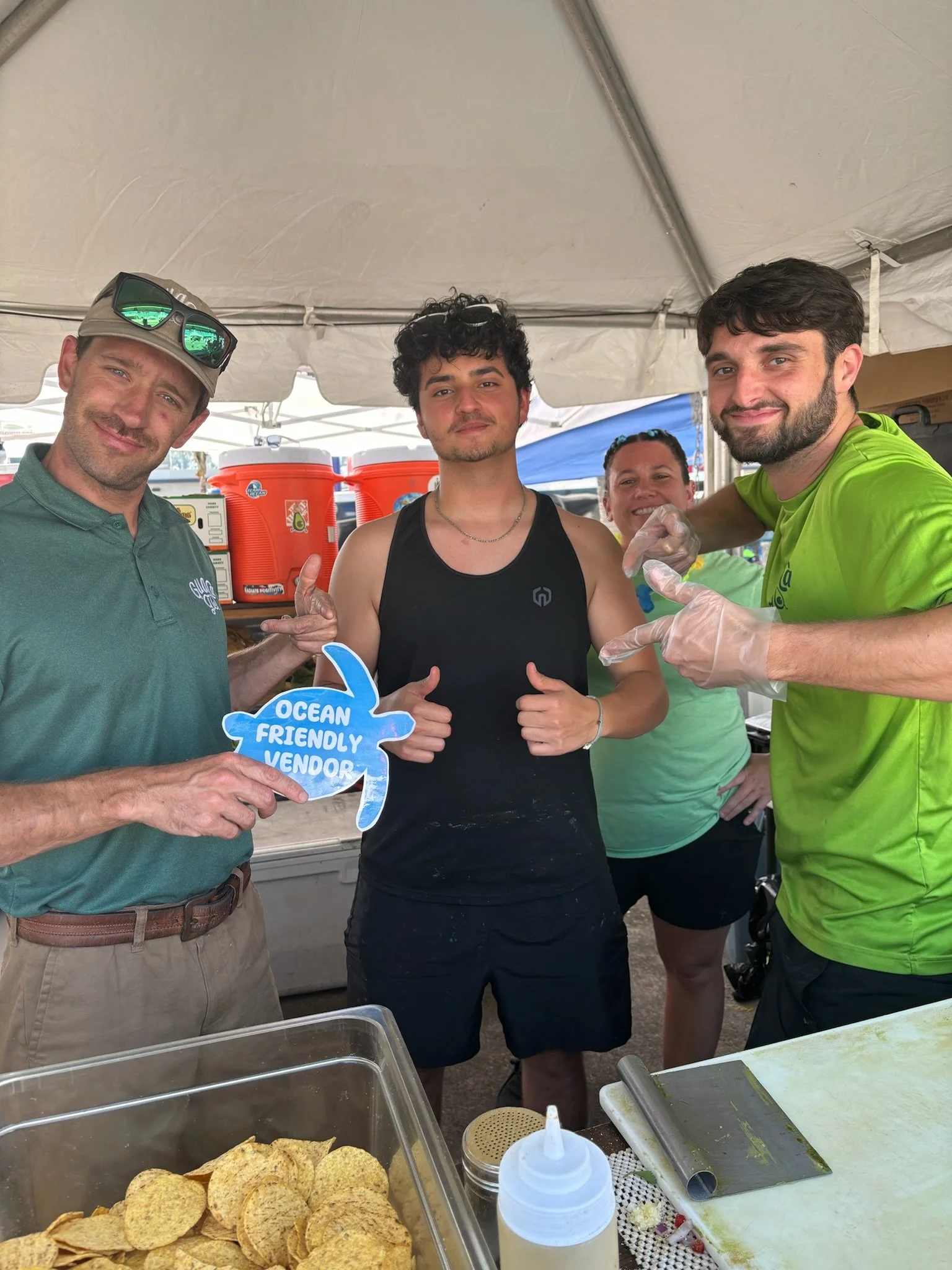Rock The Ocean’s Tortuga Festival 2024: Pioneering Sustainability with Vegan Food Options
/The annual Tortuga Music Festival in Fort Lauderdale, Florida, has long been recognized as one of the most sustainable large-scale music festivals in the world. Known for its country music headliners and diverse lineup, the festival is hosted by Rock the Ocean, a nonprofit dedicated to ocean conservation. This year, Tortuga took an important step forward by requiring all food vendors to offer at least one vegan option—marking a significant milestone in their sustainability efforts.
tortuga festival
A Legacy of Conservation
Founded by Chris Stacey, the Tortuga Festival has always had conservation at its core. Beyond the music, festival-goers are invited to visit the "Conservation Village," where over 30 organizations come together to educate attendees about marine conservation. These groups are eligible for donations through the festival's commitment to supporting the protection of ocean ecosystems.
When speaking with Annie Botch, environmental advocate and Event & Sustainability Coordinator for Rock the Ocean, she explained, “We have a responsibility to not contribute to the problems we are trying to educate about, so sustainability has always been a focus of the festival.” Tortuga has implemented numerous eco-friendly initiatives over the years, such as banning plastic water bottles in 2015, using compostable serviceware and cups, and composting food scraps. The festival even uses turtle-friendly lighting and has 24-hour turtle patrol monitoring the beach to ensure that if a turtle were to nest in the area it would not be disturbed.
“Increasing plant-based options is just one of the multiple avenues used to reduce the carbon emissions of our food and beverage operations,” Annie shared. “We encourage vendors to source food locally whenever possible and are very mindful of any generated food waste. Our site-wide (front and back of house) composting program with Renuable allowed us to divert 4.33 tons of organic waste from the landfill to be turned into nutrient-rich soil, and all leftover edible food is donated to organizations in need in the Ft. Lauderdale area.”
The Shift to Plant-Based Options
This year, an exciting addition to Tortuga’s sustainability mission was the decision to require all 30 food vendors to provide at least one vegan option. The idea stemmed from a carbon footprint evaluation in 2023, where a third-party organization suggested reducing food and beverage emissions by 10%. Annie explained, “We didn’t immediately know exactly how to do that, and we had always encouraged vegan and vegetarian options for the guest experience. But this year, we asked ourselves how we could push that more, and we decided to require at least one vegan option.”
The outcome? A resounding success. Vendors embraced the change, offering diverse options like poke bowls, tacos, cupcakes, chick’n tenders, falafel, and pizzas – all plant based. 29 out of 30 vendors provided a vegan option, and those who met all of the festival’s sustainability requirements—vegan options included—were awarded an "Ocean-Friendly Vendor" designation for their booths.
ocean friendly vendor
Why Vegan Options Matter for Sustainability
Choosing plant-based options is one of the most impactful ways to reduce environmental harm. Animal agriculture is a leading cause of deforestation, water consumption, and greenhouse gas emissions. Beef, in particular, has the largest carbon footprint of any protein, with emissions that are roughly 20 times higher than plant-based protein sources.
At Tortuga, shifting just 20% of the meals served to vegan or vegetarian options made an impact on the festival’s food-related emissions reductions. In addition, serving plant-based foods requires significantly less water and land compared to meat production. According to a study by the University of Oxford, adopting a plant-based diet can reduce an individual's food-related carbon emissions by up to 73%.
Incorporating more plant-based meals also helps reduce food waste, as plant-based dishes tend to have a longer shelf life than their animal-based counterparts. With the festival’s focus on composting and sustainable food sourcing, this shift supports their broader environmental goals.
The Tortuga Music Festival’s communication to attendees emphasized this point: “One of the simplest ways an individual can reduce their environmental impact is to choose plant-based foods. To make this easy for fans, we require every food vendor to have one clearly labeled vegan option available for purchase.”
Looking Forward: More Plant-Based Initiatives on the Horizon
The success of this year’s plant-based initiative is only the beginning. Tortuga already offers a full vegan buffet for staff and artists that request this option, and the team is working to continue increasing the presence of plant-based options in general staff catering, realizing that by reducing beef consumption among the large team working behind the scenes, they can make a bigger dent in emissions.
In collaboration with Vegan Hospitality, Tortuga Festival received tailored advice to improve even further next year. Take note if you are an event planner, because these suggestions will help any event or conference looking to lower their food related emissions:
Reduce or eliminate beef by offering more plant based or plant forward meals, lowering portion percentages of beef, or using a plant-based “beef” substitute such as tvp (soy) or pea protein. For example, serve “blended burgers” that mix 50% plant protein with 50% beef to cut emissions in half without any complaints. Make sure to also offer a fully plant based burger option for vegans and vegetarians.
Educate vendors on menu labeling, suggesting that they name dishes based on key ingredients rather than labeling them as “vegan.” For example, “Thai-Inspired Peanut Tofu Tacos” or “Blackened Portobello Tacos” will appeal to more people than simply "Vegan Tacos" because these names give customers anticipation of familiar flavors, ingredients and textures in the dish.
Increase plant-based offerings by encouraging vendors to make 30% of their menus plant-based. Vendors who meet this goal could be rewarded with premium placement or additional incentives.
Standardize a universal symbol across vendors for identifying vegan options. A neutral symbol like a blue circle or gold star can help guests easily find these options without focusing solely on the “vegan” label. Ensure that there is a key or a sign indicating to guests what this symbol stands for.
Optimize vendor menus through working with the Vegan Hospitality Team, offering professional menu reviews to help vendors increase the appeal and sales of their plant-based options.
A Sustainable Future for Festivals
Tortuga Music Festival’s commitment to sustainability should set a new standard for music events worldwide. By recognizing the importance of food choices in reducing environmental impact, they’re proving that large-scale events can combine entertainment with a meaningful ecological mission. As the world’s attention turns to more sustainable practices, Tortuga is leading the way—showing that by adhering wholeheartedly to their mission, seeking expert guidance, tracking their progress, and being willing to educate their vendors, they can successfully continue to reduce their emissions year after year.
For more details on the festival's sustainability initiatives, visit Rock the Ocean’s website.
To work with a consultant to reduce emissions through plant based options at your event, contact the Vegan Hospitality Team.
Photo Credit: All photos in this article were provided by Rock the Ocean











